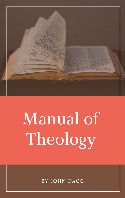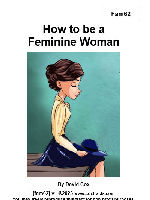THE SEVEN WORDS ON THE CROSS
By Robert Bellarmine
This Catholic work is arranged in two books, with 12 chapters in the first part, and 24 in the second. Bellarmine examines the phrases and then the individual words in Christ’s sayings.
Bellarmine was Catholic.

Dagg Manual of Theology (and links to this work in various other formats).
Dagg Manual of Theology (MySword for Android)
Dagg Manual of Theology (theWord Bible Format)
Dagg Manual of Theology (esword format)
Dagg Manual of Theology (PDF Format)
Table of Contents
PREFACE
BOOK ONE: ON THE FIRST THREE WORDS SPOKEN ON THE CROSS
CHAPTER I: The literal explanation of the first Word, “Father, forgive them, for they know not what they do.”
CHAPTER II: The first fruit to be drawn from the consideration of the first Word spoken by Christ on the Cross.
CHAPTER III. The second fruit to be drawn from the consideration of the first Word spoken by Christ upon the Cross.
CHAPTER IV: The literal explanation of the second Word, “Amen I say to thee, this day thou shalt be with Me in Paradise.”
CHAPTER V. The first fruit to be drawn from the consideration of the second Word spoken by Christ upon the Cross.
CHAPTER VI: The second fruit to be drawn from the consideration of the second Word spoken by Christ upon the Cross.
CHAPTER VII: The third fruit to be drawn from the consideration of the second Word spoken by Christ upon the Cross.
CHAPTER VIII. The literal explanation of the third Word–“Behold thy Mother: Behold thy Son.”
CHAPTER IX. The first fruit to be drawn from the consideration of the third Word spoken by Christ upon the Cross.
CHAPTER X: The second fruit to be drawn from the consideration of the third Word spoken by Christ upon the Cross.
CHAPTER XI: The third fruit to be drawn from the consideration of the third Word spoken by Christ upon the Cross.
CHAPTER XII: The fourth fruit to be drawn from the consideration of the third Word spoken by Christ upon the Cross.
BOOK II: ON THE LAST FOUR WORDS SPOKEN ON THE CROSS.
CHAPTER I. The literal explanation of the fourth Word, “My God, My God, why hast Thou forsaken Me?”
CHAPTER II: The first fruit to be drawn from the consideration of the fourth word spoken by Christ upon the Cross.
CHAPTER III. The second fruit to be drawn from the consideration of the fourth Word spoken by Christ upon the Cross.
CHAPTER IV. The third fruit to be drawn from the consideration of the fourth Word spoken by Christ upon the Cross.
CHAPTER V: The fourth fruit to be drawn from the consideration of the fourth Word spoken by Christ upon the Cross.
CHAPTER VI: The fifth fruit to be drawn from the consideration of the fourth Word spoken by Christ upon the Cross.
CHAPTER VII: The literal explanation of the fifth Word, “I thirst.”
CHAPTER VIII: The first fruit to be derived from the consideration of the fifth Word spoken by Christ upon the Cross.
CHAPTER IX: The second fruit to be derived from the consideration of the fifth Word spoken by Christ upon the Cross.
CHAPTER X: The third fruit to be drawn from the consideration of the fifth Word spoken by Christ upon the Cross.
CHAPTER XI: The fourth fruit to be drawn from the consideration of the fifth Word spoken by Christ upon the Cross.
CHAPTER XII: The literal explanation of the sixth Word, “It is consummated.
CHAPTER XIII: The first fruit to be drawn from the consideration of the sixth Word spoken by Christ upon the Cross.
CHAPTER XIV. The second fruit to be drawn from the consideration of the sixth Word spoken by Christ upon the Cross.
CHAPTER XV: The third fruit to be drawn from the consideration of the sixth Word spoken by Christ upon the Cross.
CHAPTER XVI: The fourth fruit to be drawn from the consideration of the sixth Word spoken by Christ upon the Cross.
CHAPTER XVII: The fifth fruit to be drawn from the consideration of the sixth Word spoken by Christ upon the Cross.
CHAPTER XVIII: The sixth fruit to be drawn from the consideration of the sixth Word spoken by Christ upon the Cross.
CHAPTER XIX: The literal explanation of the seventh Word, “Father, into Thy hands I commend My Spirit.”
CHAPTER XX: The first fruit to be drawn from the consideration of the seventh Word spoken by Christ upon the Cross.
CHAPTER XXI: The second fruit to be drawn from the consideration of the seventh Word spoken by Christ upon the Cross.
CHAPTER XXII: The third fruit to be drawn from the consideration of the seventh Word spoken by Christ upon the Cross.
CHAPTER XXIII: The fourth fruit to be drawn from the consideration of the seventh Word spoken by Christ upon the Cross.
CHAPTER XXIV: The fifth fruit to be drawn from the consideration of the seventh Word spoken by Christ upon the Cross.

fam62 How to be a Feminine Woman examines femininity from a Bible perspective. It compares homosexuals being feminine. Topics: God created us, man, and woman. | The Spiritual Fight is within us ourselves. | A Device of Satan A Device of Satan | The Homosexual and Trans Angle | Highlighting the Woman, How She Behaves | The Crux of the Matter | To Be a Feminine Woman, She must attend to her adorning. | The Description of a Woman.
Excerpt from the Tract: 1 Corinthians 6:9 Know ye not that the unrighteous shall not inherit the kingdom of God? Be not deceived: neither… nor adulterers, nor effeminate… In other words, these people were doing the opposite of what God commanded them to do. Being men and having the command to act manly (1 Corinthians 16:13 Watch ye, stand fast in the faith, quit you like men, be strong), they acted like women. For women, it is the command of God that they act feminine, to be womanly. To seem feminine, these perverts usually use a dress or skirt, and they never use pants, because they know that by using pants they identify themselves being masculine, and using skirts and dress with being feminine. But it seems like an impossible thing to fathom, but even homosexuals know exactly how to identify as a woman, men being feminine, in their rebellion, and Christian women can neither define what it is that God commands them to be, how to dress themselves as women, neither how to act feminine.
How do you distinguish between a man and a woman? Pants in a man, and dress or skirt in a woman. Even common bathroom signs show this obvious point. The question is not how a woman dress should, but why don’t women, especially Christian women, dress like a woman should. It is not a matter of clarity, but a matter of no desire on the part of certain women. Are you a feminine woman? If not, why not?
Read the Tract: fam62 How to be a Feminine Woman
MySwordmodules is a website dedicate to the MySword Bible Program for Androird devices. We host MySword Modules.

Old Carpenter Tools of his Trade is an explanation of why I, Pastor-Missionary David Cox, write my own materials like tracts, books, sermons, Sunday School material, etc. We produce the material that we use in our ministry and also for evangelism.
Read the short article: Old Carpenter Tools of his Trade.
